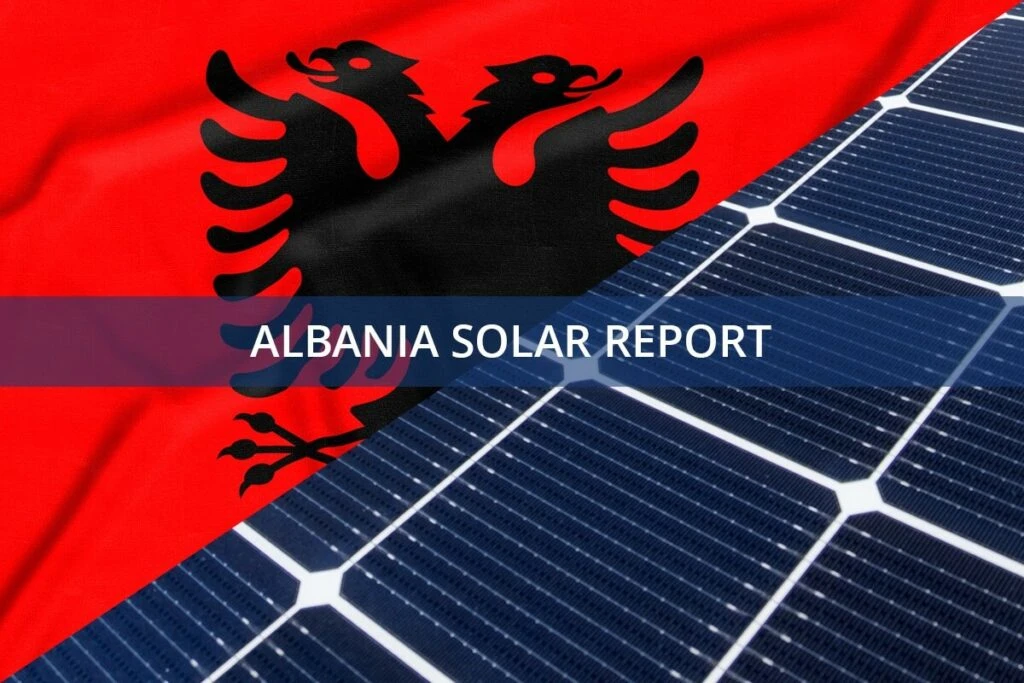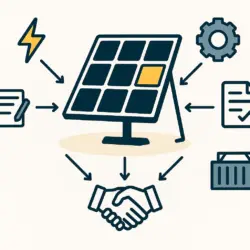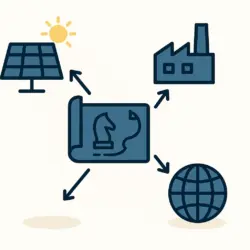Albania is advancing its renewable energy ambitions with a planned 50 MW solar park in the Fushë-Krujë area, a project propelled by an EU grant from the Western Balkans Investment Framework (WBIF). With the feasibility study now complete, the project is on track for construction to commence by 2026, marking a pivotal moment in the nation’s green energy transition.
Feasibility Study Completed for EU-Funded Albania solar park
A major milestone has been reached in Albania’s renewable energy journey with the completion of the feasibility study for a new 50 MW solar park in the Fushë-Krujë area. This critical step, funded by a European Union grant via the Western Balkans Investment Framework (WBIF), paves the way for construction to begin by 2026.
The solar park is set to be developed on a 1.4 km² plot and is projected to generate 78 GWh of clean electricity annually. This power will be integrated into the national grid through the Fushë-Krujë 220/110/35 kV substation, a key component of the country’s energy backbone. The readiness of such connection points is a crucial factor, as detailed in any thorough solar infrastructure assessment. This project is a cornerstone of a wider government initiative announced in May, which includes plans for similar large-scale facilities in Fier, Berat, Dibra, and Gjirokastër.
Albania’s Push for Albania solar park Energy
The Fushë-Krujë project is a clear signal of Albania’s strategic pivot towards diversifying its energy portfolio. It is just one of several ambitious projects the country is pursuing. Earlier this year, the state-owned utility OSHEE announced plans for five solar parks, each with a capacity of up to 50 MW, across the regions of Fier, Berat, Dibra, Gjirokastër, and Fushë-Krujë. This wave of development showcases how a modern Albania solar plant is becoming a reality.
This momentum is further evidenced by other key developments:
* Korça Solar Park: Albania’s power utility, OSHEE, has contracted local firms Gener 2 and Favina Construction to build a 12.9 MW solar park in the southern town of Korça. Expected to be operational by the end of 2024, it will contribute 18 GWh of electricity annually.
* Shkodër Solar Park: Energji Ashta has won a tender to construct another 12.9 MW solar park near Shkodër, which is slated to generate 19 GWh per year.
* Belsh Solar Park: In a separate but related initiative, the EU has provided a direct grant of €9.58 million for another 50 MW solar park in the central municipality of Belsh, reinforcing the strong international support for Albania’s green agenda.
These projects are crucial for meeting Albania’s ambitious targets: installing 400 MW of solar power by 2025 and a substantial 1,200 MW by 2030. This clear national strategy is creating a promising landscape for those considering investing in Albania solar.
Albania’s Renewable Energy Landscape for Albania solar park
Historically, Albania has been overwhelmingly dependent on hydropower, which supplies the vast majority of its electricity. While a renewable source, this reliance makes the country’s energy supply highly vulnerable to climatic variations, particularly seasonal rainfall changes and prolonged droughts. The strategic shift to solar power is essential for creating a more resilient and diversified energy mix.
Currently, Albania’s total installed solar capacity is approximately 80 MW. The new projects in the pipeline are therefore poised to dramatically increase the country’s solar energy output. For those interested in a comprehensive overview, an Albania solar panel manufacturing market insights report can provide deeper context on this growth trajectory.
The Western Balkans Investment Framework (WBIF) has been a key enabler of this transition. By providing the grant for the Fushë-Krujë feasibility study, the WBIF has demonstrated its commitment to fostering renewable energy in the region. As a joint initiative of the EU, international financial institutions, and Western Balkan governments, the WBIF is instrumental in funding critical infrastructure projects that drive socio-economic development. Successfully navigating the requirements for such projects often involves a deep understanding of the local regulatory environment, including the necessary steps outlined in a solar factory permits and setup guide.
Albania’s concerted efforts to expand its solar capacity are part of a broader strategy to build a sustainable energy system. The focus on solar power reflects a global recognition that diversifying energy sources is not just an environmental goal but a matter of national energy security.
With the backing of the EU and other international partners, Albania is making tangible progress toward its renewable energy targets and contributing to the global effort against climate change. The completion of the feasibility study for the Fushë-Krujë solar park is a definitive and encouraging step on this path forward.
If you’re inspired by Albania’s solar boom and want to understand the industry from the ground up, consider exploring the fundamentals. Our free e-course offers a comprehensive introduction to the world of solar panel manufacturing.



